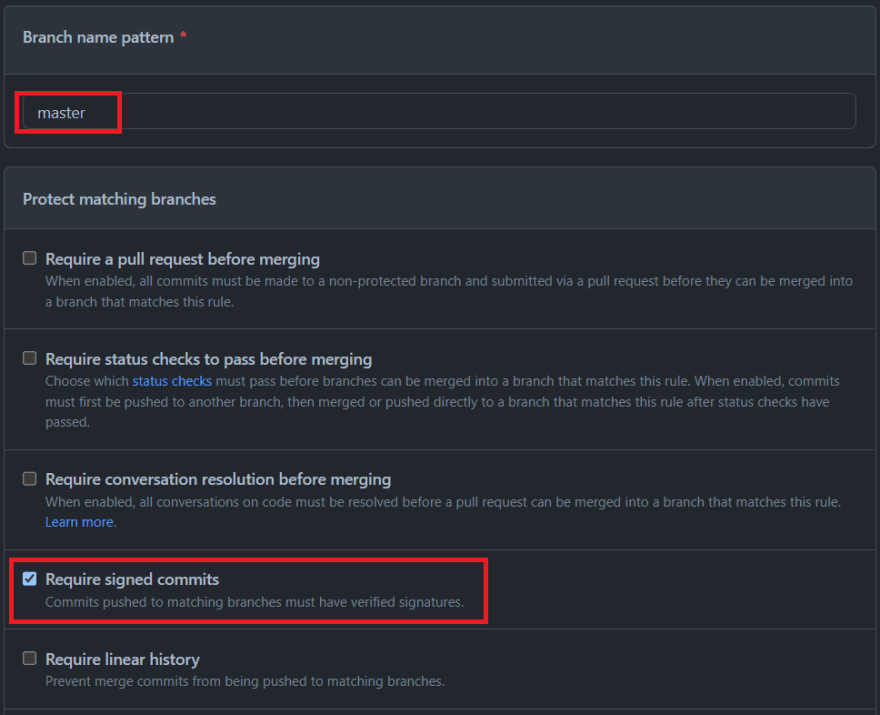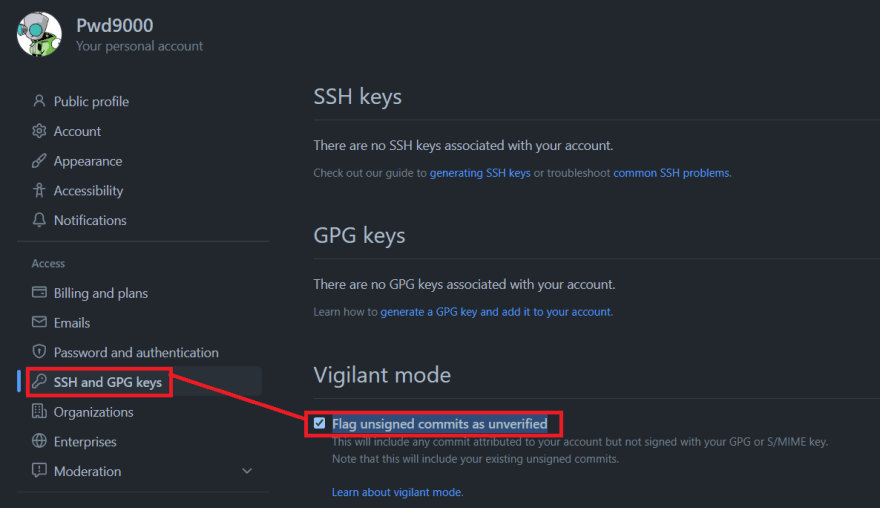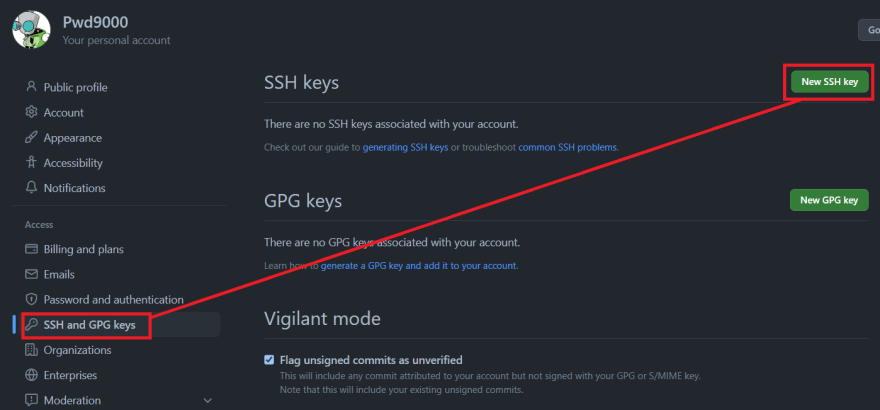This content originally appeared on DEV Community 👩💻👨💻 and was authored by Marcel.L
Overview
Today we will discuss a very important security question that may not be as obvious at first glance.
Verifying commits by signing each commit with an SSH key. Implementing commit verification gives assurance about the authenticity of the author of commits made to your code.
GitHub now supports SSH commit verification, so you can sign commits and tags locally using a self-generated SSH public key, which will give others confidence about the origin of a change you have made. If a commit or tag has an SSH signature that is cryptographically verifiable, GitHub makes the commit or tag "Verified" or "Partially Verified".
Signing commits adds a layer of protection for your codebase. We will also look at how we can actively enforce signature verification to prevent unsigned commits from being pushed to your repositories.
Example - Security liability
Let's take a quick look at an example first. Recently a user called "Pwd9000-ML" has made a code change on my repository and committed those changes to my projects codebase. Have a look at the following git commit:
Doesn't look like anything out of the norm.
As you might have guessed, my own user account is called "Pwd9000-ML", this change didn't actually come from me.
In fact, anyone can spoof a Git commit or author name with just a few terminal commands and pretend to be someone else, for example:
$ git config user.name "Pwd9000-ML"
$ git config user.email "fake.email@spoofed.com"
$ git commit -m "Added awesome new feature"
This poses a big security question. If you can't verify who is pushing code to your repository, how will you know if your codebase is being hijacked by someone pretending to be someone else?
Solution
Thankfully GitHub has made this so easy.
1.) Enable vigilant mode
First let's turn on something called vigilant mode, where we enable displaying verification statuses for all git commits.
Notice that the spoofed commit now shows as "Unverified".
To enable vigilant mode:
2.) Create a SSH signing key
Next we will enable SSH commit verification so that any future commits will be signed and shown as "Verified".
To enable SSH commit verification you can either use an existing SSH key or generate a new SSH key:
Open a command terminal and run:
$ ssh-keygen -t ed25519 -C "your_email@example.com"
If you use the defaults for the above command in Windows it will save your SSH key in the path: /c/Users/you/.ssh/id_algorithm
We are only interested in the '.pub' file as that contains the Public Key. Open the '.pub' file and copy the entire contents of the file to your clipboard.
Give the SSH key a 'Title', select the 'Key type' as
'Signing Key'and copy the entire contents of the'.pub'file into the 'Key' field.
Next we will run a few git commands so that will configure 'git' to sign all commits using the SSH key. Make sure that the minimum version of git is at least '2.34' or above.
To configure git commit signing on an individual repository, open a command prompt and navigate to the path of your cloned GitHub repository and run the following commands:
### Navigate to cloned repo root for individual repos ###
### Configure name ###
git config user.name "Your_User_Name"
### Configure email (same as what was specified in SSH key gen) ###
git config user.email "your_email@example.com"
### Specify the location of the SSH public key, default path is: /c/Users/you/.ssh/id_algorithm ###
git config user.signingkey "C:\Users\Monkey/.ssh/id_ed25519.pub"
### Enable/Enforce commit signing ###
git config commit.gpgsign true
### Configure commit signing format ###
git config gpg.format ssh
To configure git commit signing on all repositories, open a command prompt run the following 'global' commands:
### Global signing on all repos ###
### Configure name ###
git config --global user.name "Your_User_Name"
### Configure email (same as what was specified in SSH key gen) ###
git config --global user.email "your_email@example.com"
### Specify the location of the SSH public key, default path is: /c/Users/you/.ssh/id_algorithm ###
git config --global user.signingkey "C:\Users\Monkey/.ssh/id_ed25519.pub"
### Enable/Enforce commit signing ###
git config --global commit.gpgsign true
### Configure commit signing format ###
git config --global gpg.format ssh
That's it, now when you make any changes to your code and commit those changes they will be signed using the SSH public key and be displayed as 'Verfied' on your git commit history on your GitHub repo.
3.) Enable a branch policy
The last thing I wanted to cover was how you can actively enforce signature verification to prevent unsigned commits from being pushed to your repositories.
We can easily achieve this by configuring a Branch protection rule
Navigate to the repository you want to protect and select 'Settings' -> 'Branches' -> 'Add branch protection rule'.

Configure a 'Branch name pattern' for the branch the policy should be applied to and select 'Require signed commits'.

Select 'Create'. You should now have a branch policy applied that will enforce signed commits.

Conclusion
As you can see it is vey easy to configure commit signing in GitHub using SSH keys which will protect your codebase and also verify the authors and contributors to your code by following the easy steps shown above.
I hope you have enjoyed this post and have learned something new. ❤️
Author
Like, share, follow me on: 🐙 GitHub | 🐧 Twitter | 👾 LinkedIn
This content originally appeared on DEV Community 👩💻👨💻 and was authored by Marcel.L
Marcel.L | Sciencx (2022-09-13T16:16:10+00:00) GitHub commit verification using SSH. Retrieved from https://www.scien.cx/2022/09/13/github-commit-verification-using-ssh/
Please log in to upload a file.
There are no updates yet.
Click the Upload button above to add an update.










